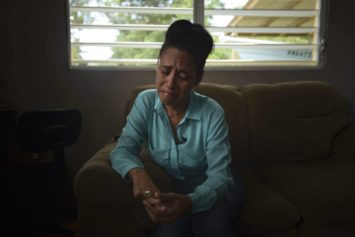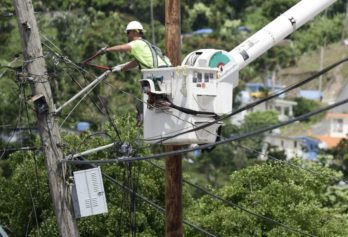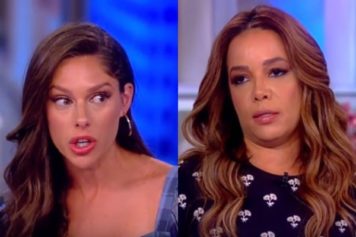More than 100,000 Puerto Ricans have departed Puerto Rico for Florida after two monstrous Atlantic hurricanes struck their beleaguered Caribbean island during hurricane season. On Sept. 6, 2017, Hurricane Irma left 1 million Puerto Rican residents without electricity, even though the Category 5 storm delivered a glancing blow to the island. Two weeks later a powerful Category 4 disturbance, Hurricane Maria, scored a direct hit on Puerto Rico.
By the first week of November, more than 139,000 Puerto Ricans had departed the battered island for the Sunshine State, the office of Republican Florida Gov. Rick Scott reported. That number could grow to 750,000 over the next four years, according to Luis Martinez-Fernandez, a University of Central Florida professor who teaches Puerto Rican culture and society.
Most of the new Floridians gravitated to the Orlando metropolitan statistical area (MSA), a development likely to have long-term political ramifications in a state that helped put Donald Trump in the White House and has had a Republican-dominated Legislature since 1996. Puerto Ricans on the mainland have been part of the Democratic bloc of voters.
Trump won Florida by a little more than 100,000 votes in 2016 over his Democratic opponent. If the current trend holds and close to a million voters do move to Florida from Puerto Rico holding a continued grudge against the Republicans and the President for what is believed to be a mismanaged relief effort could impact both state and national elections in a major way. Politically, thanks to the steady flow of Puerto Ricans into Florida, “this is a blue state, man!” notes Kevin T. Collins, editor-in-chief of The Orlando Times. “It turned blue the second Irma hit and forty-five (President Trump) did not respond properly.”
More immediately, the rising numbers of Puerto Ricans coming into the Orlando area have established a scenario where Black and Puerto Rican residents are increasingly vying for housing, employment and public education opportunities. The mix of the different cultures can potentially be a great benefit to both groups or it can lead to possible new competition between groups fighting for limited resources.
“I can’t really say there’s going to be friction because there were so many Puerto Ricans here already,” says Black Orlandoan Frazier West, a retired law enforcement officer from Maryland. “The Puerto Ricans and Latinos outnumber us maybe five to one.
“Just on my block alone there are more Puerto Rican families, which is not a bad thing because we’re pretty cool,” West says. “They’re not who voted for Trump.” In West’s opinion, the influx of Puerto Rico will remain a non-issue because “there’s no unity among Blacks here. It’s just dog eat dog, everybody for himself.”
Prior to Puerto Rico’s post-hurricane exodus, the U.S. Census Bureau data put the population in Orlando MSA at 2,376,000 people in 2016, with Blacks accounting for 16.1 percent and Hispanics — a group that includes Puerto Ricans — at 28.7 percent.
“Thankfully, we have not had any instances of culture-on-culture clashes,” notes Collins. “Actually, I’m seeing the opposite — the Hispanic American Chamber of Commerce and the African-American Chamber of Commerce are doing joint projects.” Collins lauds Blacks and Puerto Ricans for taking a measured approach to Orlando’s dramatic ethnic transformation. “We’ve been talking about how the divide and conquer” routine is not a factor.
If tensions ever do arise, Collins guesses housing might be a potential flashpoint. He says apartments that were formerly $900 a month now fetch $1,300, and three-bedroom Orlando dwellings are becoming increasingly hard to find. “What used to be considered affordable housing is now considered middle-income housing,” Collins observes. “There’s no new building going on.”
Orlando entrepreneur and broadcaster Danny Ramos also characterizes the vibe the Black and Puerto Rican communities as “very cohesive, very positive. The Puerto Rican community and the Black community have always worked together politically to support candidates they both agree on,” says Ramos, who produces an English-language “Hispanic Achiever” program that appears in the Orlando TV market. “I see more friction between Puerto Ricans and Puerto Ricans, than between Puerto Ricans and Blacks,” Ramos laughs.
“There’s a social sensitivity between those two communities because of common denominators,” Ramos explains. “Both communities have very strong common social issues and political issues. The Black community has supported Puerto Rican politicians and the Puerto Rican community has supported Black politicians.”
“From an educational standpoint, Puerto Rican parents are going to need teachers to teach their children, and a lot of them don’t speak English. So they’re going to need Spanish-speaking teachers,” says Black Orlando resident Stella Lewis, who’s been in the city 28 years after having lived in New Jersey and Maine.
“I think a lot of the jobs that Blacks would normally occupy, those jobs are going to go to Puerto Ricans. They’re working the jobs even if they have to take a lower hourly rate.
“I’m not saying we can’t work, together,” Lewis cautions. “The Puerto Ricans I come in contact with, I like. Still, I think there may be some resentment on the part of the Blacks that these people are coming in and taking over.”


